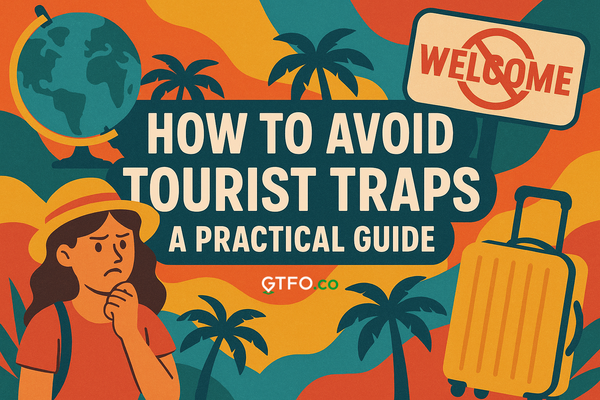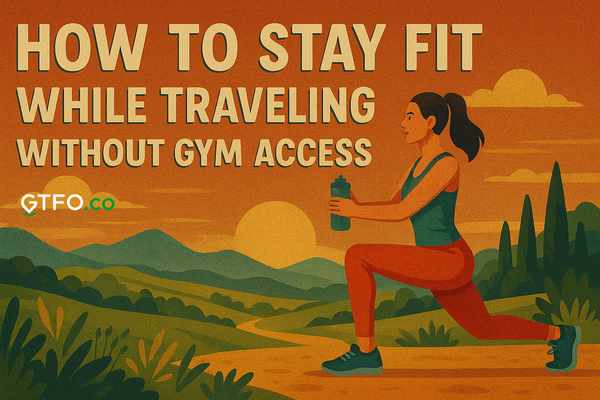How to Plan a Camping Trip: A No-Nonsense Guide
Planning a camping trip doesn’t need to be complicated, but it does need to be smart. Whether you're heading out solo or wrangling a group, this guide breaks down exactly what you need to do to make sure your trip goes off without a hitch.

Key Takeaways
- Choose your destination based on your experience level and goals.
- Book campsites early, especially in peak season.
- Make a packing checklist that covers shelter, food, clothing, and first aid.
- Don’t overpack; focus on what’s useful.
- Plan meals in advance, and prep as much as you can at home.
- Know basic safety, including fire rules, weather prep, and wildlife awareness.
- Goes without saying, but leave no trace. Clean up and respect the space.

Start with the Big Questions
Before pulling out the tent or hitting "buy" on that ultralight stove, ask yourself a few key things:
- Who’s going? Is this a solo trip, a couple’s getaway, or a group outing with kids or friends? The more people involved, the more planning you'll need.
- How long are you going for? A weekend trip is very different from a week off-grid.
- What’s the goal? Do you want to relax, hike all day, fish, or just test your gear?
- How experienced is everyone? If someone’s never camped before, you’ll need to adjust expectations.
Knowing the answers to these will shape everything from your destination to your gear list.

Choose the Right Location
There are a few ways to go about this depending on the vibe you're chasing:
- State and National Parks: Great for first-timers and families. Campsites are usually marked, and you’ll find bathrooms, fire rings, water, and maybe even a ranger station.
- Dispersed Camping (a.k.a. camping on public lands): More freedom, fewer people, no reservations—but no amenities. Good for experienced campers who are ready to be self-sufficient.
- Backcountry or Wilderness Camping: This means hiking in with everything on your back. You'll need permits in some areas and solid survival knowledge.
Use tools like Recreation.gov or The Dyrt to scope out options. And seriously, book early. Popular places fill up fast (I'm talking minutes), especially in spring and summer.

Check the Rules
Every spot has its own set of rules:
- Can you have a fire?
- Are dogs allowed?
- How many people can be at one site?
- Can you collect wood or do you need to bring your own?
Skip this step and you’re setting yourself up for a frustrating experience, or even a fine. Always read up before you go. Trust me.

Build a Gear List That Makes Sense
Here’s the bare minimum you’ll need for a basic car camping trip:
Shelter + Sleep:
- Tent (make sure you’ve set it up before you go)
- Sleeping bag (rated for the temps you’ll be in)
- Sleeping pad or air mattress
- Tarp or footprint for under the tent
Cooking + Eating:
- Camp stove or grill
- Fuel
- Lighter/matches
- Cookware (pot, pan, utensils)
- Cooler + ice
- Food storage containers
- Biodegradable soap + sponge
- Trash bags
Clothes:
- Layers (think: base layer, mid-layer, outer layer)
- Rain jacket
- Extra socks
- Hat + gloves (nights get cold even in summer)
- Comfortable shoes or boots
Other Essentials:
- Headlamp or flashlight (bring extra batteries)
- First aid kit
- Sunscreen + bug spray
- Map (don’t rely only on your phone)
- Camp chairs
- Water (and a way to purify more if needed)
You don’t need top-shelf gear to have a good time. Rent what you can. Borrow from friends. Just make sure it works before you get to camp.
Check out our Camping Essentials List.

Plan Your Meals in Advance
You don’t want to figure out food when you’re already hungry. Plan meals that are easy to cook and require minimal cleanup.
Breakfast Ideas:
- Instant oats with dried fruit
- Breakfast burritos (pre-wrap and foil them)
- Coffee or tea (don’t forget the filters or the French press)
You can also check out our article for Camping Breakfast Ideas.
Lunch:
- Wraps
- Hard cheese + cured meat
- Trail mix, jerky, energy bars
Dinner:
- One-pot meals like chili or pasta
- Grilled veggies and sausages
- Foil-packet dinners
Snacks:
- Always more than you think you’ll need
Do as much prep as possible at home: chop veggies, marinate meat, pre-mix pancake batter. Your future hungry self will thank you.
Safety First, Always
Camping is fun, but it’s not risk-free. Here's how to keep your trip safe:
- Weather: Check the forecast and pack for surprises. A sunny morning can turn into a thunderstorm fast.
- Fire: Know the local rules. If fires are allowed, keep them small and fully out when done. Never leave a fire unattended.
- Wildlife: Don’t leave food out. Store it in your car or a bear-proof container. Avoid feeding or approaching animals.
- First Aid: Know the basics—blisters, cuts, bug bites, dehydration. Carry a real first aid kit, not just a few Band-Aids.
- Navigation: Even if you think you won’t wander, bring a map and compass or GPS. Phones die.

Don’t Trash the Place
Leave No Trace isn’t just a cute slogan, it’s a rule to live by:
- Pack out everything. Yes, even your food scraps.
- Stay on trails.
- Don’t cut down branches or damage trees.
- Use established fire rings.
- Bury human waste properly if you're not near a bathroom (6–8 inches deep, 200 feet from water).
Good camping spots are hard to come by. Don’t be the reason one gets shut down.

What About Kids or Dogs?
Camping with kids can be a blast if you plan well:
- Pick a site close to water or with space to explore.
- Bring familiar food and extra snacks.
- Pack games, books, or small toys.
- Keep routines somewhat normal (bedtime, meals).
Dogs? Same deal:
- Make sure the site allows them.
- Bring a leash and don’t leave them unattended.
- Pack their food, water, and a bed.
- Check them for ticks.

Double Check Before You Go
Run through this list before you hit the road:
- Reservation confirmed
- Weather checked
- Gear packed and tested
- Food ready
- Car fueled up
- First aid stocked
- Backup plan in case of emergency
You don’t want to get to camp and realize you left your tent poles at home.
Final Thought
Planning a camping trip takes effort, but it's worth it. The more prepared you are, the more you can actually enjoy being outside. You don’t need to be a hardcore backpacker to have a great time—just thoughtful and ready.
Whether you're camping two miles off a trail or twenty feet from your car, a solid plan turns "just okay" into something memorable.
GTFO, camp smart, and don’t forget to look up at the stars.





